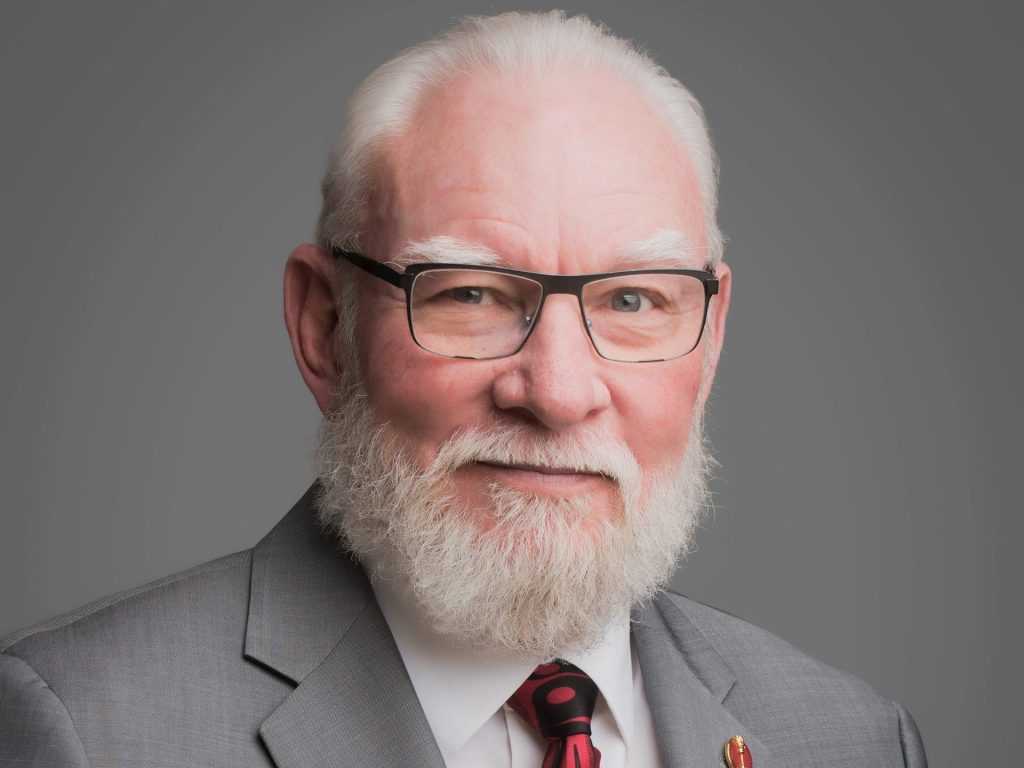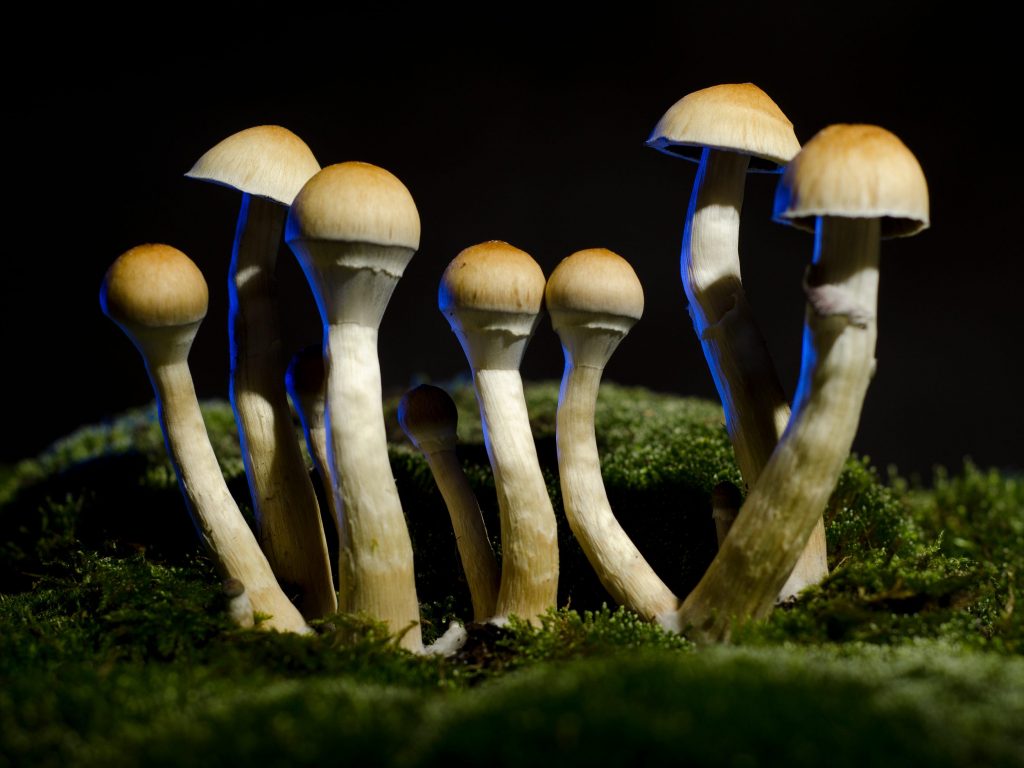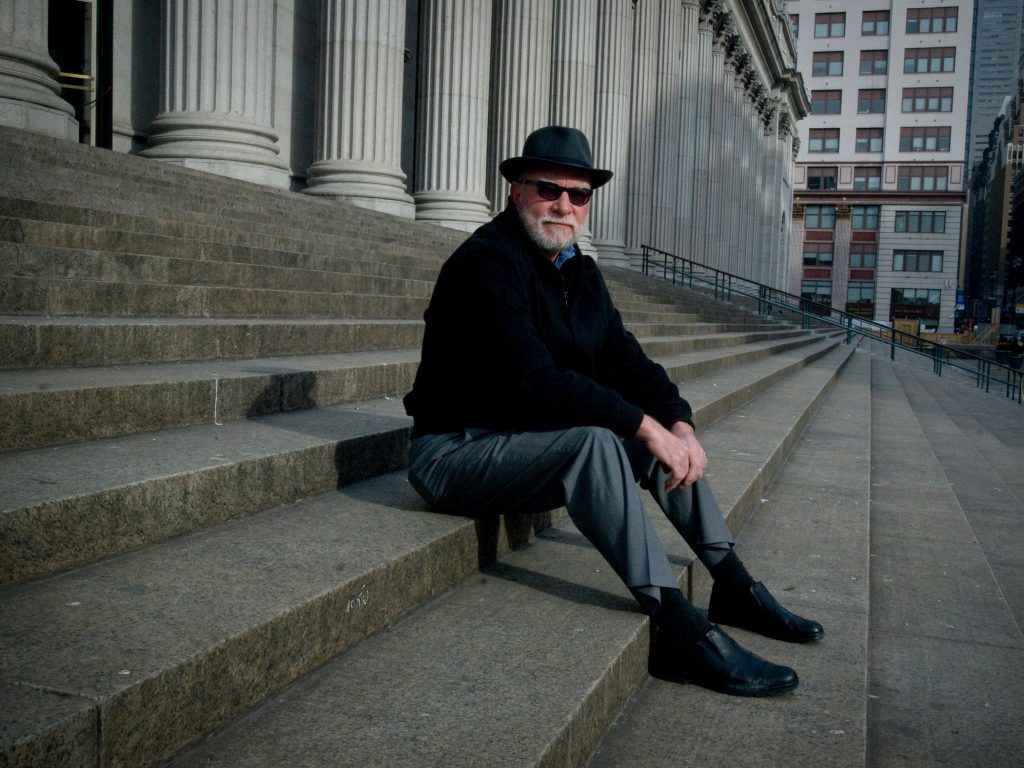- A Canadian senator first took "magic" mushrooms without realizing it and now microdoses most days.
- Sen. Campbell, aged 72 with PTSD and depression, says the drug helps but isn't a silver bullet.
- It's too early to tell from research if microdosing can help medical conditions or promote wellbeing.
Larry W. Campbell vividly recalls the day when in the midst of the pandemic, he felt inexplicably calm.
As senator, he was traveling long distances with his dog to vote on emergency COVID-19 bills. But, he was struggling to keep PTSD and depression at bay. Something as simple as standing in line would trigger a massive reaction.
"When something would happen, I would take off like a rocket," Campbell told Insider.
So he was confused when one day in 2021 he suddenly felt less "cranky."
"I'm not suggesting that the skies got blue and there were rainbows and I saw unicorns. It was just better," he said.
After three or four days, he asked his wife about his new-found buoyancy and she admitted: she was spiking his coffee with minuscule doses of psilocybin, the active ingredient in the psychedelic drug "magic" mushrooms.
The effect it had on him is not unheard-of. In fact, magic mushrooms are increasingly being recognized as a potential treatment for depression and PTSD, particularly for people who have not responded well or notably to standard treatments, like antidepressants.

Campbell, a former police officer who spent years in drug reform, said he'd never considered psilocybin before. He said his wife had told him of her plan, but he hadn't paid attention.
After unwittingly consuming it, he was sold. Now he microdoses five days a week, usually in the morning, as a complement to his antidepressants. He takes a blend recommended by Netflix-famous mycologist Paul Stamets, who advocates combining "magic" mushrooms, a non-psychedelic mushroom called lion's mane, and vitamin B.
"It doesn't work all the time, but works enough for me that it's beneficial to me and my relationship and the people I love," Campbell, who is in his seventies and lives on a sheep farm with his wife, said.
"Now it's like a switch in my brain. I get ready to be upset, and my brain goes: 'Do I really want to do this?'. And the answer is always 'no.'"
Some say microdosing is an 'amazing tool' — but other experts question whether it really works
Microdosing means taking psychedelic drugs at doses that don't produce any changes to perception. It appears to be increasingly popular, despite its illegal status in most countries. Reddit's microdosing discussion group has 202,000 subscribers, up from 27,000 in 2018, and 17,000 people in 84 countries have joined Microdose.me, a study that issues daily questionnaires to gauge the effects of microdosing.
"I think we are going to find that psychedelics, particularly LSD, are amazing tools that spark energy, increase awareness, and the love of nature," Amanda Feilding, a 79-year-old English countess who is a pioneer in exploratory psychedelic research, previously told Insider.
The same could be true for microdosing psilocybin, but we can't be sure.
Nearly every study we have on psilocybin to treat depression has involved giving bigger doses, alongside therapy, under supervision. The studies have shown promise, but we need plenty more to know if they work, and are safe, at those doses.
Ask Campbell, or any of the thousands of people on microdose.me, and you'll hear plenty of compelling anecdotes that suggest microdosing psilocybin does work. But there is a school of thought that the reported benefits may simply be a placebo effect — when symptoms improve after taking an inert compound that a person believes is active.
If you're looking for hard evidence, "so far there is not even a hint of the benefits folks are claiming," Matthew Johnson, a Susan Hill Ward professor in Psychedelics and Consciousness at Johns Hopkins University, said, adding that it could be that the right studies hadn't been done yet.

Is it safe to microdose 'magic' mushrooms on your own?
Campbell said the dose of "magic" mushrooms he uses is between 0.005 to 0.1 grams: "It's minuscule when you see it on a scale."
Once, though, he got the weight "mixed up" and took about twice as much by accident.
"It wasn't worse. It was blue out there, really blue, and I laid down and had a nap, that was it. I wasn't getting the urge to listen to Deep Purple or Jimmy Hendrix," he said.
John Krystal, a professor of Translational Research, Psychiatry, and Neuroscience at Yale School of Medicine, said it was "premature to consider microdosing as a safe or effective approach for the treatment of psychiatric disorders or to promote well-being generally".
Albert Garcia-Romeu, an assistant Professor of Psychiatry and Behavioral Sciences at Johns Hopkins, added there's a theoretical risk that regular microdosing may weaken heart valves due to the receptors psychedelics act on.
He cautioned people with predisposition to certain mental health conditions like bipolar mood or psychosis could be at risk of developing mental health problems after exposure to psychedelics.
The 'most important' part
Campbell said the "most important" part of his speaking out is that he hopes the legal status of psilocybin is reconsidered, mainly so microdosing can be more easily studied. He hopes people with conditions where higher doses might help, like end-of-life anxiety, can more easily access the drug.
Campbell felt compelled to share his personal story at the opening ceremonies of the Catalyst Psychedelics Summit in Kingston, Ontario: "I looked down at these people and I just thought, somebody has to understand that this may not work for everybody. This may not, it's not a silver bullet, but it certainly works for some people. And it has worked for me, not all the time, but it has worked for me."
"I want there to be a real conversation on this and a discussion with real scientists and with real doctors who can argue both sides. That's fine. I don't mind arguing both sides, but let's do it," he said.
Dit artikel is oorspronkelijk verschenen op z24.nl

